
Reproductive Biology
metrics 2024
Bridging Disciplines for a Deeper Understanding of Reproduction
Introduction
Reproductive Biology is a premier academic journal published by Elsevier, dedicated to advancing the field of reproductive science. With an ISSN of 1642-431X and an E-ISSN of 2300-732X, this journal has been serving the scientific community since its inception in 2001. It notably holds a Q1 ranking in Animal Science and Zoology as of 2023, underscoring its significant impact and prominence in this domain. The journal encompasses a wide array of topics surrounding reproductive biology, including but not limited to endocrinology and developmental processes, making it an essential resource for researchers and practitioners. Although it operates under a traditional access model, its comprehensive scope offers valuable insights that contribute to advancements in reproductive health, animal conservation, and biotechnology. Published in the Netherlands, Reproductive Biology aims to foster interdisciplinary collaboration and innovation, ultimately enriching our understanding of reproductive mechanisms across various species. Researchers, professionals, and students alike will find this journal an indispensable platform for disseminating groundbreaking research and engaging with the latest findings in reproductive science.
Metrics 2024
 0.57
0.57 2.50
2.50 2.30
2.30 45
45Metrics History
Rank 2024
Scopus
IF (Web Of Science)
JCI (Web Of Science)
Quartile History
Similar Journals
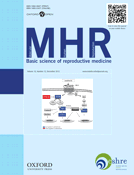
MOLECULAR HUMAN REPRODUCTION
Unraveling the Complexities of Reproduction at the Molecular LevelMOLECULAR HUMAN REPRODUCTION, published by Oxford University Press, is a pivotal journal dedicated to advancing the field of reproductive biology. Since its inception in 1995, the journal has been recognized for its rigorous peer-reviewed research and substantial contributions to the understanding of molecular mechanisms underlying human reproduction. With an impressive impact factor and ranked within the top tiers (Q1 and Q2) across diverse categories including Embryology, Obstetrics and Gynecology, and Reproductive Medicine, it stands as an essential resource for researchers, healthcare professionals, and students alike. The journal aims to publish cutting-edge research that explores the complexities of human reproduction at the molecular and cellular levels, fostering a deeper understanding that can be translated into clinical practice. Although it currently operates under a subscription model, the valuable insights and groundbreaking findings featured within its pages continue to influence the trajectory of reproductive health research globally. Located in the heart of Oxford, United Kingdom, the journal remains committed to addressing vital challenges in the field and promoting innovative scientific dialogue.
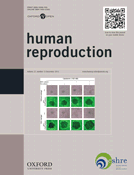
HUMAN REPRODUCTION
Exploring the latest breakthroughs in reproductive health.HUMAN REPRODUCTION is a prestigious academic journal published by Oxford University Press, dedicated to advancing the field of reproductive medicine. With an impressive impact factor highlighting its significance, the journal ranks in the top quartile (Q1) for Obstetrics and Gynecology, Rehabilitation, and Reproductive Medicine, showcasing its crucial role in disseminating high-quality research. Founded in 1986, it has become a key resource for researchers, practitioners, and students interested in cutting-edge developments and innovative practices in human reproduction. Despite not currently offering open access, the journal continues to publish a wealth of peer-reviewed articles that contribute substantially to clinical knowledge and practice. With Scopus rankings placing it among the top journals in its categories, HUMAN REPRODUCTION remains an essential platform for discussion and dissemination of vital findings impacting reproductive health globally.
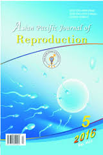
Asian Pacific Journal of Reproduction
Exploring the Frontiers of Reproductive ScienceAsian Pacific Journal of Reproduction is a dynamic open-access journal specializing in a diverse array of topics related to reproduction across various species, including humans, animals, and plants. Published by Wolters Kluwer Medknow Publications, this peer-reviewed journal has been committed to disseminating high-quality research since its inception in 2012. With an accessible ISBN of 2305-0500 and E-ISSN 2305-0519, the journal has rapidly established itself within the academic community, evidenced by its categorization in Q3 and Q4 quartiles across multiple fields, including Obstetrics, Gynecology, and Animal Science. Researchers are encouraged to contribute their findings to foster a deeper understanding of reproductive health and practices in the Asian Pacific region and beyond. The journal's inclusive scope and emphasis on interdisciplinary collaboration make it a crucial platform for professionals and scholars seeking to stay at the forefront of reproductive research.
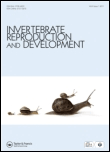
INVERTEBRATE REPRODUCTION & DEVELOPMENT
Illuminating the Developmental Journey of Invertebrates.INVERTEBRATE REPRODUCTION & DEVELOPMENT, published by Taylor & Francis Ltd, is a pivotal journal in the fields of Animal Science and Zoology, with a significant focus on the reproductive and developmental processes of invertebrates. Established in 1989 and running through 2024, this journal has become an essential resource for researchers, professionals, and students interested in the intricacies of invertebrate biology. With an impressive Q2 ranking in Animal Science and Zoology and a dedicated readership, the journal explores a variety of topics including reproductive mechanisms, developmental stages, and phylogenetic aspects of invertebrates. While currently not open access, the journal provides robust scholarly content that contributes to advancing knowledge in both basic and applied biological sciences. The Scopus rankings further underscore its relevance, particularly in the domains of developmental biology and genetics, making it a noteworthy publication for those engaged in this dynamic field of research.
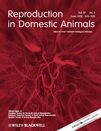
REPRODUCTION IN DOMESTIC ANIMALS
Connecting Science and Practice in Reproductive BiologyREPRODUCTION IN DOMESTIC ANIMALS is a distinguished peer-reviewed journal published by Wiley that has been at the forefront of advancing knowledge in the field of animal science since its inception in 1966. With an ISSN of 0936-6768 and an E-ISSN of 1439-0531, this journal specializes in the intricate aspects of reproductive biology in domestic species, supporting both scientific research and practical applications in agriculture. Ranked Q2 in Animal Science and Zoology and Q3 in both Biotechnology and Endocrinology, the journal plays a crucial role in addressing contemporary challenges in animal reproduction, contributing significant insights to researchers, professionals, and students alike. Although it does not currently offer open access, its editorial team is committed to publishing high-quality studies that enhance our understanding of reproductive mechanisms and foster advancements in the field. The convergence of data, innovative methodologies, and practical implications in the journal fosters a rich dialogue among scientists and practitioners worldwide, making it an essential resource for anyone invested in animal reproductive health.

MOLECULAR REPRODUCTION AND DEVELOPMENT
Unraveling the secrets of reproduction and development.MOLECULAR REPRODUCTION AND DEVELOPMENT is a prestigious peer-reviewed journal published by WILEY, specializing in the intricate domains of Cell Biology, Developmental Biology, and Genetics. Since its inception in 1988, this journal has been a vital platform for disseminating pioneering research and innovative methodologies that advance our understanding of molecular mechanisms driving reproduction and development. With a current impact factor reflective of its significance in the field, MOLECULAR REPRODUCTION AND DEVELOPMENT is ranked Q3 in both Cell Biology and Developmental Biology, and Q2 in Genetics, underscoring its relevance and scholarly contribution. Catering to a diverse audience of researchers, professionals, and students, this journal not only showcases cutting-edge findings but also aims to foster interdisciplinary exchanges that enhance scientific collaboration. By exploring critical biological processes, it ultimately contributes to the broader understanding of health and disease in various organisms, making it an essential resource for anyone dedicated to the life sciences.
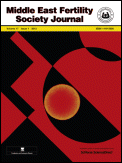
Middle East Fertility Society Journal
Elevating global discourse on fertility and reproductive health.Middle East Fertility Society Journal is a premier open-access publication established in 1996 that caters to the fields of Obstetrics and Gynecology as well as Reproductive Medicine. Published by SPRINGER in Egypt, this journal has made significant strides in disseminating high-quality research and advancements in reproductive health, achieving a 2023 Scopus rank of #102 in Obstetrics and Gynecology and #47 in Reproductive Medicine, placing it in the 51st and 48th percentiles respectively. With an aim to foster collaboration and innovation in the fertility sector, it welcomes researchers and practitioners to share their findings and insights, contributing to the global discourse on reproductive issues. As an open-access journal since 2010, it ensures that the latest research is readily available to a broad audience, enhancing accessibility and knowledge transfer in the vital area of reproductive health.
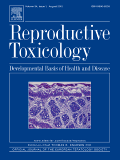
REPRODUCTIVE TOXICOLOGY
Unraveling the complexities of reproductive toxicants.REPRODUCTIVE TOXICOLOGY, published by Pergamon-Elsevier Science Ltd, stands as a pivotal journal in the field of toxicology, specifically focusing on the effects of environmental and pharmaceutical agents on reproductive health. Established in 1987, the journal has a rich history of contributing to the scientific community, and it continues to publish rigorous research and reviews that illuminate the intricate relationships between various toxicants and their reproductive impacts. With an impressive 2023 Q2 ranking in Toxicology and a Scopus ranking of #42 out of 133 in the Toxicology category, REPRODUCTIVE TOXICOLOGY emphasizes high-quality scholarly work that influences both academia and industry practices. Researchers, professionals, and students in toxicology, pharmacology, and public health will find this journal an invaluable resource for staying informed on the latest findings and methodologies in reproductive toxicology. While the journal currently adheres to traditional publishing models without open access options, its authoritative content remains accessible to a global audience interested in advancing the understanding of toxicological impacts on reproduction.

Plant Reproduction
Championing Open Access in Plant SciencePlant Reproduction is an esteemed academic journal published by Springer, dedicated to advancing the understanding of reproductive processes in plants. With its ISSN 2194-7953 and E-ISSN 2194-7961, this journal serves as a vital resource for researchers and professionals in the fields of cell biology and plant science. Since its inception in 2013, it has been recognized in the Q1 Quartile for plant science, underscoring its significance and impact within the academic community, while maintaining a ranking of #79/516 in the Scopus database for agricultural and biological sciences. The journal embraces an Open Access model, enhancing accessibility for a broader audience of scholars and practitioners. As we continue to converge our research efforts towards 2024 and beyond, Plant Reproduction remains committed to exploring innovative findings and fostering collaboration in plant reproductive biology, thereby contributing significantly to the global understanding of plant systems and their ecological impacts.
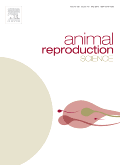
ANIMAL REPRODUCTION SCIENCE
Exploring the Science Behind Animal ReproductionANIMAL REPRODUCTION SCIENCE, published by Elsevier, is a leading journal dedicated to the field of animal reproduction and developmental biology. With an ISSN of 0378-4320 and an E-ISSN of 1873-2232, it serves as a vital resource for researchers, professionals, and students interested in advancing their understanding of reproductive mechanisms across various species. The journal has been recognized for its high-quality contributions, achieving a Q1 ranking in Animal Science and Zoology and showcasing its significant impact in the areas of Endocrinology and Veterinary Medicine as per the 2023 category quartiles. Covering a wide range of topics from reproductive physiology to genetic implications, this journal not only highlights innovative research but also fosters interdisciplinary dialogue in the rapidly evolving world of animal science. Though not currently offering open access, it remains a crucial platform for disseminating pivotal research findings from across the globe. With its rich history dating back to 1936, ANIMAL REPRODUCTION SCIENCE continues to drive excellence in animal reproduction studies, positioning itself at the forefront of the field, and solidifying its relevance in both science and industry.